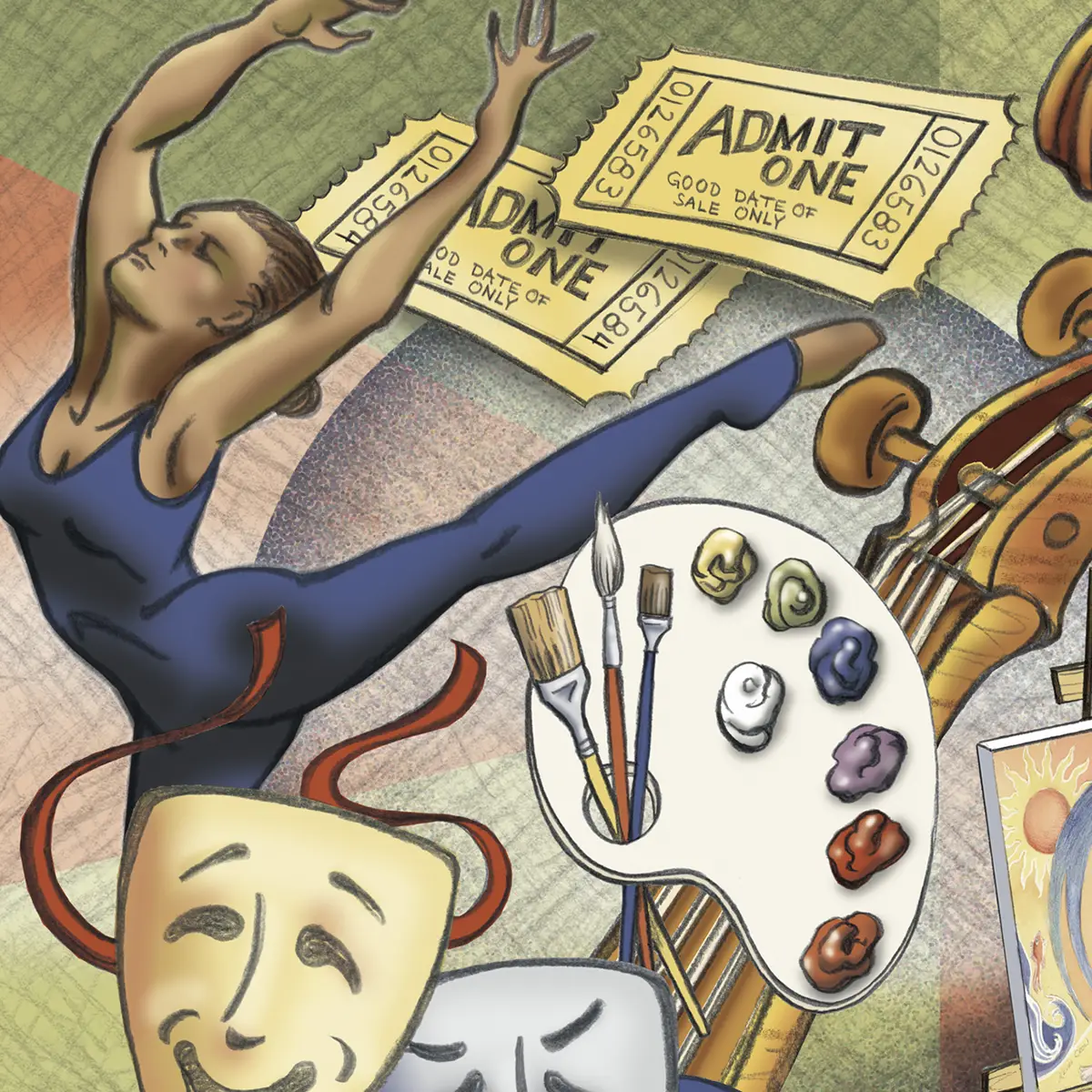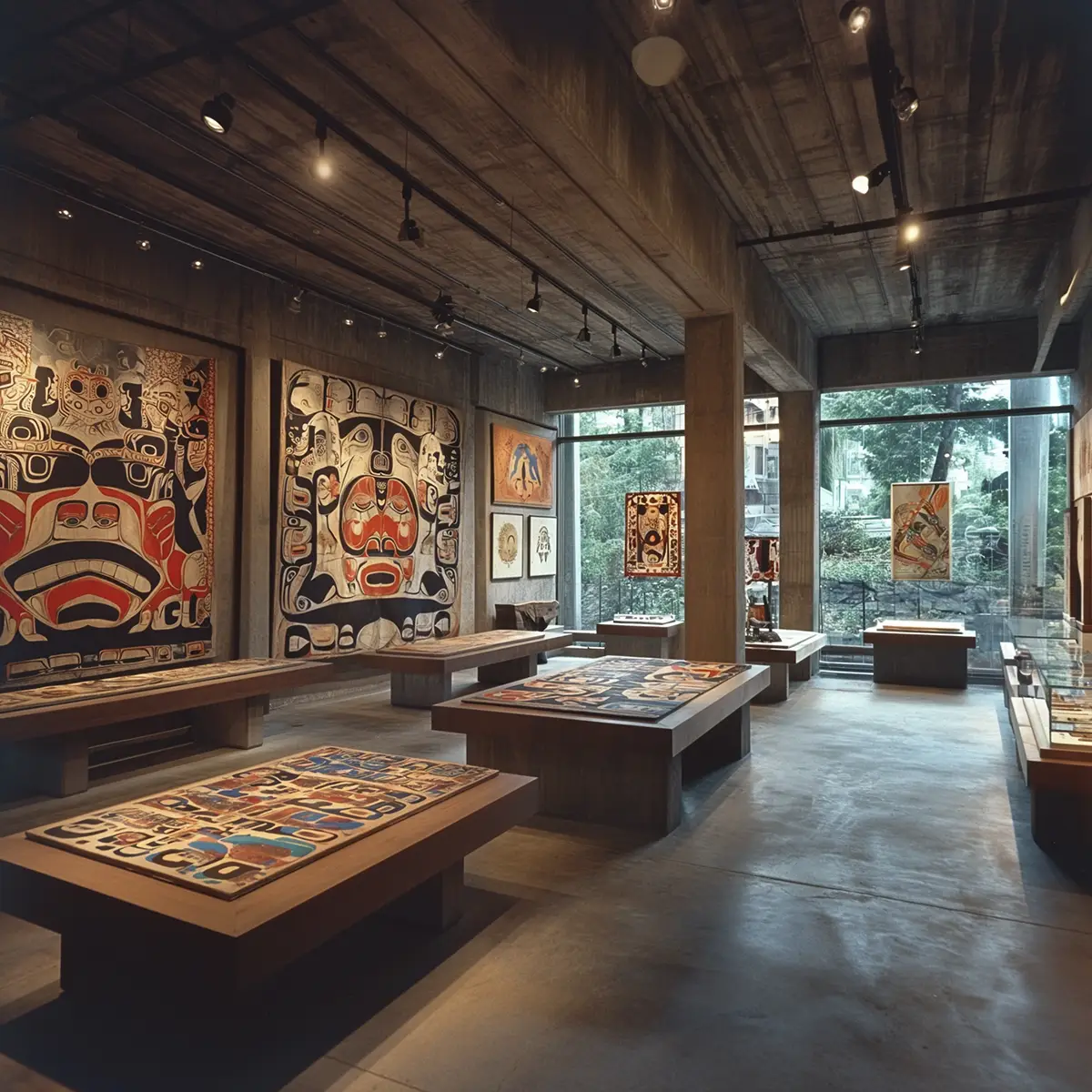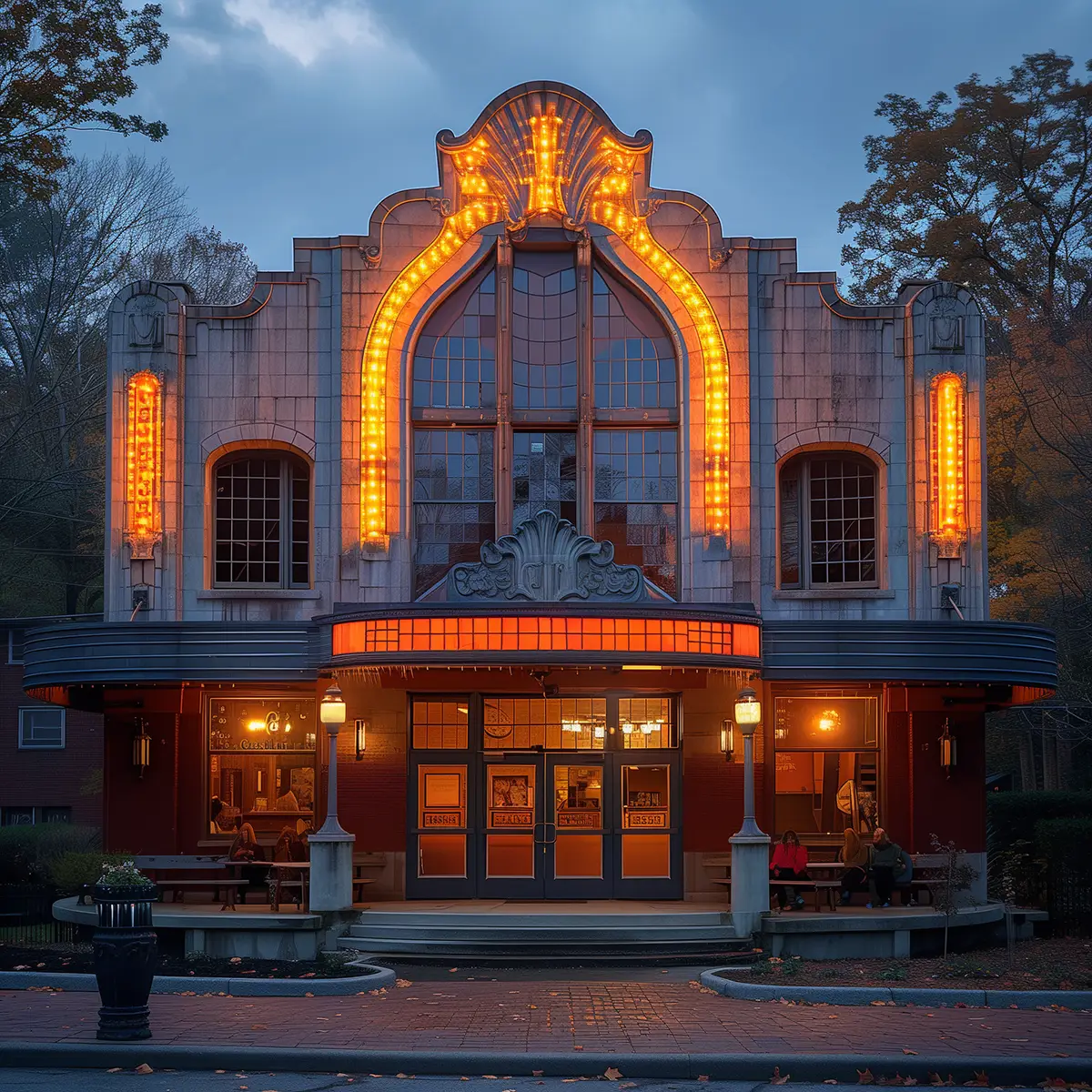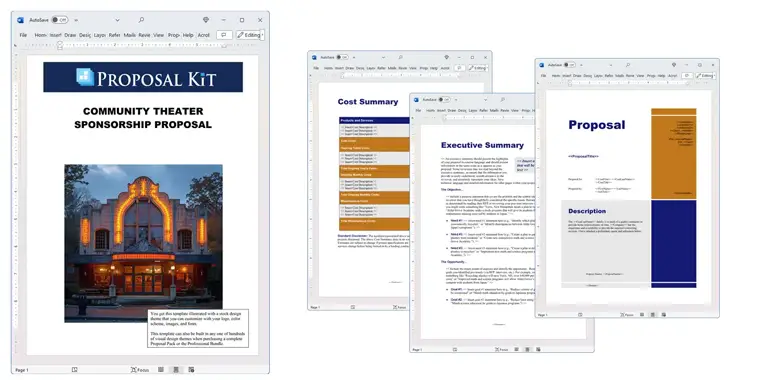How to write your Community Theater Sponsorship Proposal
We include this 16 page layout with every Proposal Pack. If you want this template to have a different visual design theme than the one illustrated here, purchase any Proposal Pack design and create this template using the purchased design theme. This template is included in every Proposal Pack. If you get a Proposal Pack or the Professional, you can also make any variation of this template with different chapters to suit your needs.
We typically include more chapters in the templates than most people will need to give everyone more variety in the chapters they may need. You can trim down a long template by removing pages you do not need or combining multiple chapter topics into one page.
 DOWNLOADABLE, ONE-TIME COST, NO SUBSCRIPTION FEES
DOWNLOADABLE, ONE-TIME COST, NO SUBSCRIPTION FEESYou can also create countless variations of this document to suit your needs using the included library of 2200+ chapters if ordering a Proposal Pack or Professional.
 What Our Clients Say
What Our Clients SayI will recommend your product to anyone looking for proposal software."
Related Article
Related Video
Related Templates
- Music Event Sponsorship Proposal
- Sponsorship Proposal
- Benefit Charity Concert Sponsorship Proposal
- Arts and Cultural Heritage Funding Project Proposal
- Sponsorship of Non-Profit Proposal
- Charity Fundraiser Proposal Template
- Sponsorship of Non Profit Proposal
- Corporate Sponsorship Proposal Template
- Live Entertainment Proposal
- Sponsor Logos on Vehicles Proposal
- Awards Support and Sponsorship Proposal
- Charity Focused Business Proposal Template
- Gambling Tournament Sponsorship Proposal
Community Theater Sponsorship Proposal with Proposal Kit
Writing a community theater sponsorship proposal can seem overwhelming for many, especially those without proposal writing experience. A proven way to navigate this challenge is by utilizing the Proposal Kit template library and Wizard software program. This comprehensive solution offers a straightforward approach to creating professional and effective proposals, incorporating a detailed line item quoting database system for financial documentation. This system allows users to easily manage cost summaries, quotes, estimates, budgets, and other economic aspects crucial to convincing sponsors of the value and feasibility of their investment.
Are you in a situation where you need to write a proposal for community theater sponsorship but need help knowing where to start?
Proposal Kit is your answer, offering templates that cater specifically to the needs of those seeking sponsorship for community theater projects. Here's how you can use selected Proposal Kit chapters to build your proposal:
What Types of Projects Are Community Theater Sponsorship Proposals Written For?
Community theaters often seek sponsorships for various projects to enhance their facilities and offer more to the community. One place to explore for arts sponsorship would be the National Endowment for the Arts. Examples of these projects include:
- Renovation of the playhouse to improve audience experience.
- Upgrading lighting and sound equipment for better production quality.
- Hosting special guest performances to attract larger audiences.
- Establishing educational workshops and programs for local artists.
- Launching community outreach initiatives to increase theater participation.
- Organizing annual festivals to celebrate local talent and culture.
- Implementing eco-friendly practices within theater operations.
- Expanding the theater's repertoire to include diverse and inclusive productions.
- Developing online streaming capabilities for broader accessibility.
- Creating a youth theater group to nurture future talent.
Chapters this template is built with
These chapters are just a few examples of the thousands of customizable templates available in Proposal Kit's library, ensuring that your proposal can cover all necessary topics.
Cover Letter
The cover letter is your first point of engagement with potential sponsors. It's an opportunity to warmly introduce your theater, conveying the essence of the proposed project and the heart and soul behind it. Highlight your theater's mission and vision, emphasizing how the project aligns with broader cultural enrichment and community engagement goals. This personal touch sets the tone for the proposal, inviting sponsors to become part of a meaningful endeavor.
Introduction
In the introduction, capture the spirit and significance of your theater within the community. Paint a vivid picture of its role as a cultural hub, where arts and community intersect to create something extraordinary. Emphasize the importance of community arts for social cohesion, artistic expression, and local identity. This section should introduce your theater and make a compelling case for why the arts matter.
Needs Assessment
Detail your theater's current challenges, from outdated facilities to limited programming capacity or the need for technological upgrades. This honest appraisal of your theater's needs sets the stage for a clear understanding of why sponsorship is beneficial and necessary. It's crucial to link these challenges directly to how they affect your ability to serve the community and fulfill your mission.
Goals and Objectives
Clearly outline the specific goals and objectives your theater aims to achieve with the sponsorship funds. Whether expanding your programming, renovating your playhouse, or increasing accessibility for underserved community members, each goal should be tied to tangible outcomes and benefits. This section demonstrates your theater's forward-thinking approach and commitment to making the most of the sponsorship opportunity.
Venue
The venue is central to your proposal, representing the physical and symbolic heart of your theater's community impact. Describe the unique features of your village theater or playhouse, from its historical significance to its architectural charm or its role as a communal gathering space. Emphasize what makes your venue a worthy investment, not just in terms of cultural capital but as a beacon of community pride and potential.
Community
Highlight the symbiotic relationship between the theater and the local community. Discuss the theater's contributions to the area's cultural, educational, and economic vitality. Showcase how the theater serves as a platform for community voices, a space for educational outreach, and a catalyst for local business activity. This section should underline the mutual benefits of a vibrant community theater.
Entertainment
Delve into your theater's diverse and high-quality productions, from classic plays to modern performances, community-led projects, and educational programs. Highlight how these productions enrich the cultural landscape, foster local talent, and provide entertainment and inspiration for audiences of all ages. This variety is a testament to your theater's role in promoting artistic diversity and cultural literacy.
Uses of Funds
Provide a detailed breakdown of how the sponsorship funds will be allocated, ensuring transparency and accountability. Whether for specific renovations, technological updates, or program development, each expense should be justified regarding its contribution to the theater's goals and the project's overall success. This clarity reassures sponsors of the thoughtful and practical use of their support.
Cost/Benefit Analysis
Offer a comprehensive analysis of the anticipated costs versus the sponsorship benefits for both the theater and the sponsors. Highlight the return on investment in terms of enhanced community engagement, increased visibility for sponsors, and the long-term sustainability of the theater. This section should argue that the value of sponsoring your theater extends far beyond the financial.
Facilities
Describe the current state of your theater's facilities, acknowledging both their strengths and areas for improvement. Detail the planned enhancements and how they will elevate the overall experience for performers and audiences. This acknowledgment of the present and a vision for the future demonstrate a commitment to excellence and growth.
About Us
Share the journey of your theater, from its inception to its current standing in the community. Highlight significant achievements, challenges overcome, and your theater's impact on local culture and community life. This narrative builds a connection with potential sponsors, showcasing your dedication and resilience.
Staff
Introduce the dedicated team behind the theater, from front-of-house staff to technical crew and creative talents. Highlight their contributions and the roles they play in bringing the magic of theater to life. This personal touch adds depth to your proposal, emphasizing the human element of your theater's operations.
Sponsors
Clearly outline the benefits and recognition sponsors will receive, from branding opportunities and VIP access to special performances to public acknowledgment of their support. Tailor these benefits to align with potential sponsors' values and interests, making the sponsorship opportunity as attractive and mutually beneficial as possible.
Use cases for this template
Alex's Leap Forward with Harmony Playhouse
Alex, the owner of Harmony Playhouse, faced the universal challenge of small theaters everywhere: limited resources for expansion and improvement. Understanding the crucial role of community support, Alex aimed to connect with local businesses for sponsorships. With Proposal Kit, he found the perfect tool. The software provided a step-by-step guide to writing a proposal that highlighted the cultural significance of Harmony Playhouse and outlined the tangible benefits for sponsors.
Using the Proposal Kit, Alex presented a vision where local businesses could see their support come to life not just on stage but in the enriched cultural fabric of the village. The proposal included:
- Detailed plans for upgrading the theater's sound and lighting systems.
- Enhancing the audience's experience.
- Expanding educational programs for local youth.
Each aspect was meticulously costed using Proposal Kit's line item quoting database, showcasing Alex's commitment to transparency and effective fund use.
The result was a wave of support from local businesses, each eager to participate in the playhouse's journey. Sponsor logos began to appear in program booklets and across promotional materials, a testament to the community's collective effort to support the arts. For Alex, the Proposal Kit was more than a tool; it was a bridge connecting Harmony Playhouse's aspirations with the tangible support of the community.
Casey's Deadline Victory at Bright Lights Entertainment
At Bright Lights Entertainment, Casey was under pressure. Tasked with securing sponsorships for an upcoming season, she faced an immovable deadline. Turning to the Proposal Kit, Casey discovered a powerful resource. She used the Jasper AI tool to analyze the company's website and extracted vital messages, themes, and values, which Casey then wove into the proposal templates provided by Proposal Kit.
This integration of technology and template-driven structure allowed Casey to work with unprecedented efficiency. She wrote a proposal that not only met the tight deadline but did so with flair and professionalism. The document detailed sponsors' unique opportunity to align with groundbreaking theater productions, offering them visibility among an engaged and diverse audience.
Casey's work culminated in a presentation to her superiors, who were impressed by her ability to meet the tight timeline and the quality of the proposal itself. The success of Casey's effort led to a successful sponsorship drive, ensuring the theater's ambitious season could proceed as planned. In Casey's hands, the Proposal Kit had become a tool of innovation, turning the daunting task of a sponsorship proposal into a triumph of efficiency and effectiveness.
Jordan's RFP Success for Creative Arts Collective
Jordan, a dedicated volunteer at the Creative Arts Collective, recognized the power of partnership in sustaining the local theater scene. The task was to draft an RFP to attract sponsors who shared the theater's commitment to community engagement and the arts. Proposal Kit offered Jordan a clear pathway to success, providing templates that could be tailored to articulate the collective's needs, values, and the benefits of sponsorship.
Jordan meticulously outlined the types of sponsorship packages available, each with its benefits, from high visibility in theater productions to opportunities for sponsors to directly engage with the theater's audience. The Proposal Kit templates helped Jordan organize this information clearly and attractively, making it easy for potential sponsors to understand how their support could make a difference.
The response to the RFP exceeded expectations. The quality and clarity of the document, facilitated by Proposal Kit, drew in a range of sponsors, from local businesses to more giant corporations interested in supporting the arts. This influx of support enabled the Creative Arts Collective to secure funding for their immediate projects and plan for the future with greater confidence.
Conclusions and Recommendations
Each situation reflects the software's ability to transform the daunting task of proposal writing into a manageable process, leading to tangible results and fostering a stronger sense of community through the arts. Whether writing a detailed sponsorship proposal, racing against the clock, or organizing an RFP to attract the right partners, the Proposal Kit is an indispensable tool for those working to support and grow the community theater scene.
Also Known As
This template may also be referred to in different ways or be used in more specialized situations, such as:
- Proposal for Community Theater Sponsorship
- Sponsorship Request for Local Theater
- Community Arts Sponsorship Proposal
- Theater Funding Request Proposal
- Proposal to Sponsor Community Theater
- Local Theater Support Proposal
- Sponsorship Proposal for Community Performing Arts
- Proposal for Supporting Local Theater Productions
- Community Theater Partnership Proposal
- Funding Proposal for Community Theater Initiatives
Abstract
 Creating a proposal for community theater sponsorship can be challenging, especially for those new to proposal writing. Proposal Kit offers a comprehensive solution with templates and a Wizard software program designed to simplify the process. This tool helps theater groups develop professional proposals that outline sponsorship requests to potential sponsors. By using a detailed quoting database, users can manage budgets, quotes, and financial documentation important for securing sponsorship for events and projects.
Creating a proposal for community theater sponsorship can be challenging, especially for those new to proposal writing. Proposal Kit offers a comprehensive solution with templates and a Wizard software program designed to simplify the process. This tool helps theater groups develop professional proposals that outline sponsorship requests to potential sponsors. By using a detailed quoting database, users can manage budgets, quotes, and financial documentation important for securing sponsorship for events and projects.
A community theater often seeks sponsorships to enhance its facilities and expand its offerings to the community. The proposal's cover letter serves to introduce the theater warmly to companies and individuals, highlighting its mission and the project's cultural significance. The introduction paints a vivid picture of the theater's role as a cultural hub, emphasizing the vital connection between arts and community. It's crucial to address existing challenges in the needs assessment, linking them to the theater's goals and objectives.
The proposal must clearly define how sponsorship funds will be used, providing a clear cost/benefit analysis for potential sponsors. Emphasizing the symbiotic relationship between the theater and the local community can attract sponsors by showcasing the theater's impact on cultural, educational, and economic vitality. Additionally, detailing the theater's diverse entertainment offerings and the positive uses of funds reassures sponsors of the proposal's value. Highlighting the dedicated staff and the theater's journey further personalizes the proposal, building a connection with potential sponsors.
 By using Proposal Kit, theater groups can efficiently develop sponsorship proposals that capture the essence of their projects, align with potential sponsors' values and interests, and demonstrate the mutual benefits of supporting the arts. This method transforms the task of proposal writing into a manageable process, fostering a stronger sense of community engagement through theater initiatives.
By using Proposal Kit, theater groups can efficiently develop sponsorship proposals that capture the essence of their projects, align with potential sponsors' values and interests, and demonstrate the mutual benefits of supporting the arts. This method transforms the task of proposal writing into a manageable process, fostering a stronger sense of community engagement through theater initiatives.
Creating a successful community theater sponsorship proposal involves highlighting key topics to attract potential sponsors. Using Proposal Kit, theaters can streamline their proposal development by incorporating customizable templates that cater specifically to the unique needs of community theater projects. This approach ensures that crucial topics, such as sponsorship requests and event planning, are thoroughly addressed, making the proposal more compelling and effective.
The proposal begins with a cover letter, which acts as the first point of contact with potential sponsors. This section should warmly introduce the theater, mentioning its significance within the community and inviting sponsors to participate in a meaningful cultural endeavor. By emphasizing the theater's mission and vision, the cover letter sets the stage for a proposal that aligns the theater's aspirations with the sponsor's interests.
 In the introduction, it's vital to capture the theater's role as a cultural and artistic hub. This part of the proposal should illustrate how the theater serves as a meeting place where arts and community life intersect, creating unique opportunities for social cohesion and artistic expression. By painting a vivid picture of the theater's impact, the proposal can convey the importance of community arts initiatives.
In the introduction, it's vital to capture the theater's role as a cultural and artistic hub. This part of the proposal should illustrate how the theater serves as a meeting place where arts and community life intersect, creating unique opportunities for social cohesion and artistic expression. By painting a vivid picture of the theater's impact, the proposal can convey the importance of community arts initiatives.
The needs assessment section should detail the theater's current challenges and how sponsorship can address these issues. By clearly outlining how these challenges affect the theater's ability to serve the community, the proposal makes a case for why sponsorship is both beneficial and necessary. Subsequently, the goals and objectives section should articulate the specific outcomes the theater aims to achieve with the sponsorship, ensuring potential sponsors understand the tangible benefits of their support.
The proposal should also highlight the venue's unique characteristics, emphasizing its potential as an investment in cultural and community pride. Additionally, showcasing the theater's diverse events and entertainment offerings demonstrates the theater's commitment to artistic diversity and cultural literacy, appealing to sponsors interested in supporting vibrant community activities.
 The proposal must clearly outline the uses of funds, providing a clear and detailed cost/benefit analysis. This transparency reassures sponsors of the thoughtful and practical use of their support, enhancing the proposal's credibility. By highlighting the theater's contributions to the area's cultural, educational, and economic vitality, the proposal underscores the mutual benefits of a robust community theater.
The proposal must clearly outline the uses of funds, providing a clear and detailed cost/benefit analysis. This transparency reassures sponsors of the thoughtful and practical use of their support, enhancing the proposal's credibility. By highlighting the theater's contributions to the area's cultural, educational, and economic vitality, the proposal underscores the mutual benefits of a robust community theater.
Finally, introducing the dedicated team behind the theater, from creative talents to technical crew, adds a personal touch that can resonate with sponsors. By conveying the human topic of the theater's operations, the proposal not only appeals to potential sponsors' business interests but also to their desire to support community-focused initiatives. Through the thoughtful integration of these topics, the Proposal Kit helps theater groups create compelling sponsorship proposals that foster stronger community ties and enrich local cultural landscapes.
Frequently Asked Questions
What should be included in a community theater sponsorship proposal?
A community theater sponsorship proposal should include the following key elements: an engaging cover letter, an overview of the theater's mission and activities, a detailed description of the sponsorship opportunities and their benefits to the sponsor, an outline of the marketing and promotional plans, a budget or funding request, and contact information. Structured templates from the Proposal Kit can help cover all critical components.
How can I convey the benefits to potential sponsors in my proposal?
When conveying the benefits to potential sponsors, it's crucial to personalize the proposal to align with their values and goals. This not only establishes a connection but also makes the proposal more compelling. Highlight the exposure and marketing opportunities they will receive, such as logo placement on promotional materials, mentions in press releases, and tickets to performances. Provide data on audience demographics and reach, and emphasize the positive community impact of supporting the arts.
What are some mistakes to avoid when writing a community theater sponsorship proposal?
These include failing to tailor the proposal to the specific sponsor, not clearly outlining the benefits to the sponsor, using jargon that may not be familiar to the reader, and submitting a proposal with errors or poor formatting. To ensure your proposal is effective, it should be clear, concise, and professionally presented. Using Proposal Kit's templates can help you avoid these pitfalls and present a polished proposal that quickly communicates the value of the sponsorship.
How can I make my community theater sponsorship proposal stand out?
To make your proposal stand out, write a compelling narrative highlighting your theater's unique aspects and the positive impact of sponsorship. Include testimonials from past sponsors or community members, provide detailed marketing and promotional plans, and offer customized sponsorship packages that align with the sponsor's interests. A visually appealing design and well-organized content will also help capture the sponsor's attention.
How can I use the Proposal Kit to create a community theater sponsorship proposal?
Proposal Kit's comprehensive library of templates is designed to help you create winning proposals. By selecting a template that fits your needs, customizing it with relevant details about your theater and the sponsorship opportunities, and following the structured format, you can ensure all critical elements are included. Proposal Kit's templates guide you through the process, making it easier to present a polished and persuasive proposal.
20% Off Discount
![]() Add To Cart This Word Template
Add To Cart This Word Template
 Add To Cart Proposal Pack for Any Business
Add To Cart Proposal Pack for Any Business
 Add To Cart Proposal Kit Professional
Add To Cart Proposal Kit Professional
 4.7 stars, based on 849 reviews
4.7 stars, based on 849 reviewsProposal Kit chapters used in this template
Cover Letter, Title Page, Table of Contents, Introduction, Needs Assessment, Goals and Objectives, Community, Entertainment, Venue, Facilities, Sponsors, Uses of Funds, Cost/Benefit Analysis, About Us, Staff, Back Page
Line Item Automated Chapters
If you purchase a Proposal Pack or the Professional Bundle, these proposal pages are generated using an automated line-item database in the included Wizard software.
Cost Benefit Analysis
You use this proposal for
- General business proposal
- Non-technical proposal
- Project pitch proposal
- Non-government grant, non-profit, NGO proposal
- Business plan, loan, investor funding proposal
- Marketing and advertising proposal
- Entertainment or event planning proposal
How to create this template with Proposal Pack Wizard
You can create this document using any of the logo-designed Proposal Packs. Pick any Proposal Pack with a logo design theme you like best; they will all work equally well. The Proposal Pack for Any Business is the pack with no extra added logos or colors - designed to be used plain or for you to customize with your logos and graphics.
The Proposal Pack design theme you purchase will determine the visual look of this template. The screenshot above only shows the plain generic design theme.
We include a library of chapters to be assembled based on your needs. All proposals are different and have different needs and goals. We designed Proposal Pack so you can customize the documents to suit your needs.
You will best create this document using the Proposal Pack Wizard - Expert Edition software to select this template and build it in the Proposal Pack logo design theme of your choice along with any desired customizations (such as adding additional chapters, removing unneeded chapters, changing the order of chapters, and importing your company logo). This template outlines a proposal for the described situation. Each user is responsible for typing in the actual content of the provided pages with their information to complete the proposal. Suggestions in the abstract may include features in higher-end packages and are facilitated by the selection of chapter templates to support the narrative of each proposal, which help guide the user in filling in the details.
The Wizard software's AI Writer will write the content of the pages of the template based on details provided for your company, client, project, financial details and other writing instructions. This will provide a personalized version of the template completely written and ready to edit.
Once finished, the AI Writer's Word-to-PowerPoint converter can transform your proposal, business plan, or other business documents into a PowerPoint slideshow. Save time and effort by letting the AI analyze every chapter to condense its content into talking points, visually matching the document, and providing a consistent package of presentation material with the click of a button.
You create this template using the Wizard software with an entire Proposal Pack library and software. We include the Expert Edition of the software in the Proposal Kit Professional. Microsoft Word for Windows is required to use the customizing software. You can also edit Word document templates in other office software such as Word for Mac. We will assist Mac users in assembling complex templates for their first project if they do not have the required platform to run the Wizard software.
How to Build Templates Featured on Proposal Kit Website
Many people find the Proposal Kit website after searching for a specific proposal. Once you've purchased and installed the software, how do you build that template you found in the first place? This video shows you how to build any proposal you see on the Proposal Kit website.
 Ian Lauder has been helping businesses write their proposals and contracts for two decades. Ian is the owner and founder of Proposal Kit, one of the original sources of business proposal and contract software products started in 1997.
Ian Lauder has been helping businesses write their proposals and contracts for two decades. Ian is the owner and founder of Proposal Kit, one of the original sources of business proposal and contract software products started in 1997.By Ian Lauder
 Published by Proposal Kit, Inc.
Published by Proposal Kit, Inc.


 Cart
Cart
 Get 20% off ordering today:
Get 20% off ordering today: 


 Facebook
Facebook YouTube
YouTube Bluesky
Bluesky Search Site
Search Site